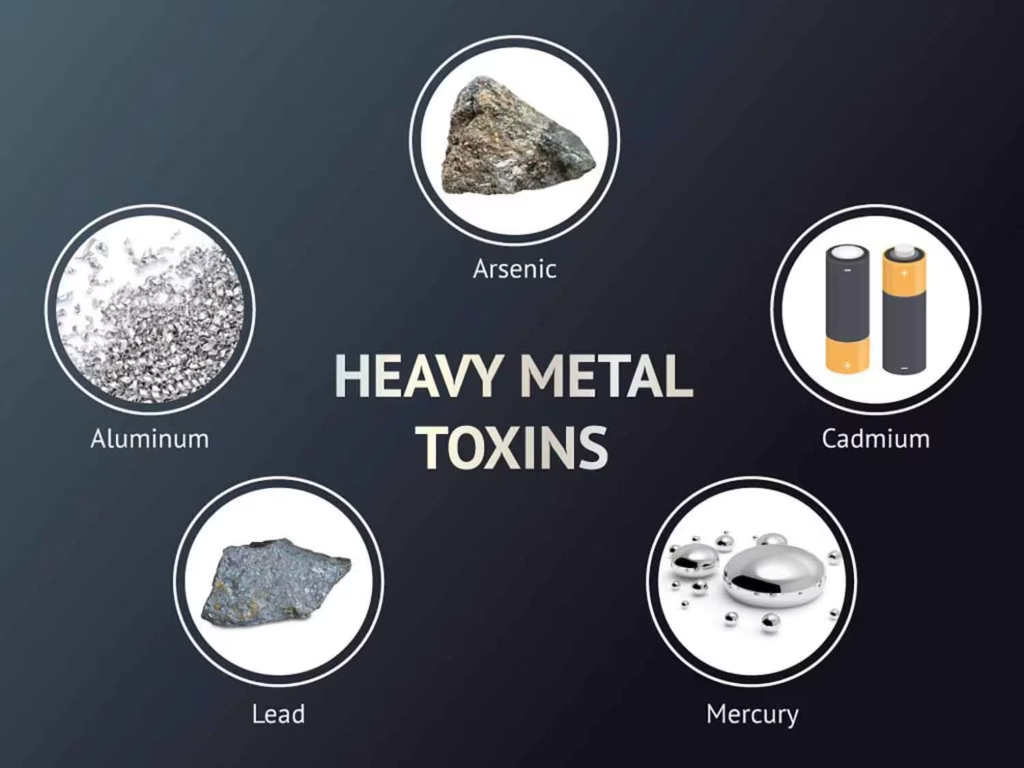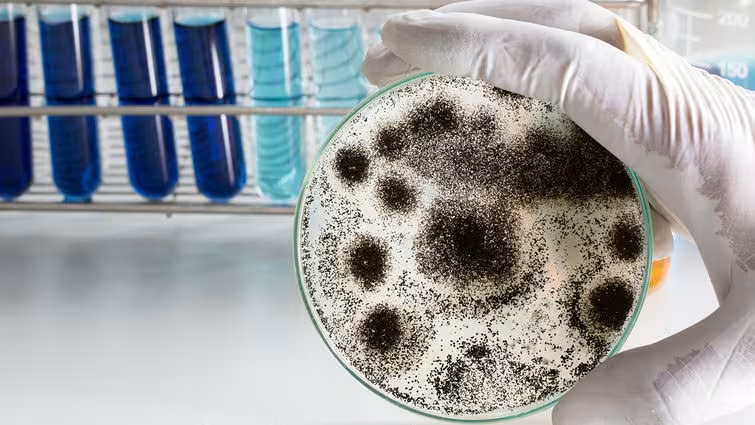Introduction to Homeopathic Medicine
Homeopathy has been gaining popularity in Singapore as more people discover its holistic approach to health and wellness.
This alternative medicine system, developed over 200 years ago by German physician Dr. Samuel Hahnemann, provides a natural treatment method based on the principle of “like cures like.”
What is Homeopathy?
Homeopathy refers to a medicine formulated on the principle that “like cures like” (Similia Similibus Curantur).
This means any substance that can produce symptoms in a healthy person can, in minute doses, treat similar symptoms in someone who is unwell.
These medicines are prepared according to homeopathic manufacturing procedures described in homeopathic pharmacopoeias.
To understand this concept better, consider the example of an onion. When a healthy person cuts an onion, it typically causes itchiness and burning in the eyes, leading to tears and discomfort.
Following homeopathic principles, a homeopathic doctor might prescribe allium cepa (a micro-dose of onion) to a patient suffering from similar symptoms such as burning eyes, runny nose, and watery eyes.
When the symptoms match the characteristics of the remedy, homeopathy aims to bring about a neutral or curative effect.
You might be interested: Health Screening in Singapore
The Two Fundamental Principles of Homeopathy
1. Similia Similibus Curantur (Like Treats Like)
This foundational principle suggests that substances causing specific symptoms in healthy individuals can be used in highly diluted forms to treat similar symptoms in sick individuals.
Dr. Hahnemann discovered this when he found that quinine bark, a conventional medicine for malaria, produced malarial-like fevers when taken by a healthy person.
He then realized that treating “like with like” could effectively stimulate the body’s natural healing response.
2. Minimal Dosage
The second principle involves using extremely diluted doses of substances.
Dr. Hahnemann started treating ailments with very small doses of herbs and remedies to mitigate the risk of side effects and toxicity.
This approach is logical when considering the first principle of “like treats like.” These highly diluted substances retain the therapeutic properties of the original substance while eliminating potential harmful effects.
Regulatory Requirements for Homeopathic Medicines in Singapore
In Singapore, homeopathic medicines (HM) are not subject to approvals and licensing by the Health Sciences Authority (HSA) for their importation, manufacture, and sales.
However, HSA prohibits the addition of medicinal ingredients such as steroids in homeopathic medicines and sets strict limits on toxic heavy metals in these products.
Dealers (importers, manufacturers, wholesale dealers, and sellers) have the obligation to ensure that their products are not harmful or unsafe and that they conform with specific guidelines before supplying homeopathic medicines into Singapore.
Toxic Heavy Metal Limits

Your homeopathic product must not exceed the following heavy metal limits:
| Heavy Metal | Permissible Limits |
|---|---|
| Arsenic | 5 parts per million (ppm) |
| Cadmium | 0.3 ppm |
| Lead | 10 ppm |
| Mercury | 0.5 ppm |
Microbial Limits

Products must also comply with strict microbial limits:
Oral Products
| Microbe | Microbial Limits |
|---|---|
| Total aerobic microbial count | Not more than 10⁵ CFU per g or ml |
| Yeast and mould count | Not more than 5 x 10² CFU per g or ml |
| Escherichia coli, Salmonellae and Staphylococcus aureus | Absent in 1g or ml |
Topical Products
| Microbe | Microbial Limits |
|---|---|
| Total aerobic microbial count | Not more than 10⁴ CFU per g or ml |
| Yeast and mould count | Not more than 5 x 10² CFU per g or ml |
| Pseudomonas aeruginosa and Staphyloccocus aureus | Absent in 1g or ml |
Dealers and sellers must ensure that the microbial content and heavy metals in their products are appropriate and safe when used according to the recommended conditions and for the intended users.
Labelling Requirements
Product labels should include the ingredients and their strengths in English.
Importantly, homeopathic products are not allowed to claim or indirectly suggest that they will prevent, alleviate, or cure any of the following conditions:
- Blindness
- Cancer
- Cataract
- Drug addiction
- Deafness
- Diabetes
- Epilepsy or fits
- Hypertension
- Insanity
- Kidney diseases
- Leprosy
- Menstrual disorder
- Paralysis
- Tuberculosis
- Sexual function
- Infertility
- Impotency
- Frigidity
- Conception and pregnancy
All health claims and information associated with homeopathic products must be sufficiently supported and submitted to HSA as and when required.
Unsubstantiated health claims will be considered misleading and must be removed from product materials.
You might like: Comprehensive Guide to Colonoscopy in Singapore
Prohibited Ingredients
Homeopathic medicines manufactured or imported and sold in Singapore cannot contain these ingredients or substances:
- Synthetic drugs
- Transmissible Spongiform Encephalopathy (TSE)
- Animal-derived ingredients
Transmissible Spongiform Encephalopathy (TSE) refers to a group of progressive diseases including scrapie in sheep and goats, chronic wasting disease in mule, deer and elk, bovine spongiform encephalopathy (BSE) in cattle, as well as Kuru and Creutzfeldt-Jakob Disease (CJD) in humans.
Substances from Endangered Species

If your product contains substances from endangered species listed under the Endangered Species (Import & Export) Act, you should contact the Wildlife Management Group of NParks to obtain the necessary Convention on the International Trade in Endangered Species of Wild Fauna and Flora (CITES) import and export permits.
Advertisements and Promotions
A valid permit from HSA is required before publishing any medical advertisement or conducting any sales promotion activity directed at the general public.
For more information, refer to HSA’s advertisements and promotions guidelines.
Benefits of Homeopathy
Many people in Singapore are turning to homeopathy for various reasons:
- Safe and Non-Toxic: Homeopathic remedies are highly diluted, minimizing the risk of toxic effects. There are generally no side effects, making them suitable for infants, children, the elderly, and pregnant women.
- Holistic Approach: Homeopathic remedies aim to heal both mind and body simultaneously, addressing the entirety of a person’s suffering with a single medicine.
- Individualized Treatment: Homeopathic medicine is selected according to each person’s unique personality and symptom profile.
- Mind-Body Connection: Homeopathy recognizes that illness often involves both mental and emotional aspects as well as physical symptoms. Homeopathic remedies aim to address all dimensions of suffering.
- Stimulates Self-Healing: Rather than relying on strong drug effects, homeopathic remedies stimulate the body’s natural self-healing mechanisms, which may lead to more permanent healing than conventional drug treatments.
- Compatible with Other Medications: Homeopathic remedies generally do not interfere with conventional drugs, making them usable alongside other treatments.
- Easy to Administer: The small sublingual tablets dissolve quickly on the tongue, eliminating the need to swallow pills.
- Preventive Measures: Some homeopathic medicines can be used preventively for various conditions.
- Anti-Viral and Anti-Allergic Properties: Some homeopathic medicines provide gentle relief for allergies, viral warts, colds, and other conditions without causing drowsiness.
You might be interested: The Ultimate Guide to Losing Weight in Singapore
Homeopathy for Different Age Groups
Infants and Children
Infants and children respond particularly well to homeopathic treatments.
Their developing immune systems and organs make them susceptible to various digestive, respiratory, and skin conditions.
Homeopathy offers several advantages for this age group:
- Remedies are safe to use for very young children, including newborns
- The mildly sweet pills, powders, or liquids are palatable and easy to administer
- Treatment can help strengthen immunity throughout childhood
- Effective for common childhood ailments such as colic, colds, coughs, fever, teething problems, and behavioral issues
This might help: Pediatric Dentistry in Singapore: Complete Guide to Kids’ Dental Care
Common childhood conditions that respond well to homeopathy include:
- Cold, cough, fever, and vomiting
- Colic and digestive issues
- Teething problems
- Eczema and other skin conditions
- Recurrent infections
- Behavioral problems like irritability, fears, hyperactivity, and habits like thumb-sucking
Pregnant Women
During pregnancy, many women prefer to avoid conventional medicines to protect their unborn child from potential risks. Homeopathy offers a safe alternative for managing common discomforts of pregnancy with negligible risk to mother or baby.
Conditions during pregnancy that can benefit from homeopathic treatment include:
- Morning sickness
- Heartburn
- Constipation
- Hemorrhoids
- Bladder infections
- Anemia
- Backache
- Vaginal discomfort
Women who receive homeopathic remedies during pregnancy often report easier labor and fewer postpartum complications, as the treatment addresses overall balance and health.
Elderly Care
As we age, our bodies undergo numerous changes that can bring challenges. Homeopathy can help elderly individuals maintain better quality of life by addressing:
- Age-related physical changes and discomforts
- Emotional and psychological adjustments to aging
- Overall immune system function
Benefits for elderly patients include:
- Gentle, non-harmful treatment compatible with their more sensitive systems
- Support for maintaining physical and mental alertness
- Assistance with adaptation to age-related changes
- Non-addictive pain management options
Homeopathy can help elderly individuals cope with:
- Joint and muscle discomfort
- Sleep disturbances
- Memory and concentration issues
- Digestive changes
- Circulatory concerns
- Emotional wellbeing
You might want: What Treatment is Best for Anti-Aging?
Conditions Commonly Treated with Homeopathy
Homeopathy addresses both acute and chronic conditions. Some of the conditions that commonly respond to homeopathic treatment include:
Respiratory Conditions
- Asthma
- Bronchitis
- Sinusitis
- Recurrent respiratory infections
- Allergic rhinitis/hay fever
Digestive Issues
- Irritable bowel syndrome
Related article: Irritable Bowel Syndrome (IBS): Causes, Symptoms and Treatment in Singapore
- Acid reflux/GERD
- Constipation
- Diarrhea
- Peptic ulcers
- Mouth ulcers
Read more: Acid Reflux and GERD in Singapore: Causes, Symptoms, and Treatments
Skin Conditions
- Eczema
- Psoriasis
- Acne
- Warts
- Urticaria (hives)
- Vitiligo
Pain Management
- Migraines and headaches
- Back pain
- Arthritis
- Sciatica
- Sports injuries
Women’s Health
- Menstrual irregularities
- Premenstrual syndrome (PMS)
- Menopausal symptoms
- Polycystic Ovarian Disease
- Uterine fibroids (small)
Mental and Emotional Health
- Anxiety
- Depression
- Stress
- Sleep disturbances
- Concentration difficulties
Other Conditions
- Allergies
- Motion sickness
- Chronic fatigue
- Varicose veins
- Recurrent infections
Homeopathy in Singapore: Current Landscape
In Singapore, homeopathy continues to gain popularity as people share their positive experiences with this form of treatment.
Originally from Germany, homeopathy has spread worldwide, including to Singapore, particularly following colonial influences from Europe and India.
Many people turn to homeopathy after finding that conventional medicine does not fully address their health concerns.
While not as mainstream as conventional medicine in Singapore, there is growing recognition of homeopathy’s benefits, especially for chronic conditions, pediatric care, pregnancy-related issues, and elderly care.
FAQ Section
What exactly is homeopathy?
Homeopathy is a holistic system of medicine developed by German physician Dr. Samuel Hahnemann in 1796. It follows the principle that “like cures like” (Similia Similibus Curantur), meaning substances that cause symptoms in healthy people can, when highly diluted, treat similar symptoms in those who are ill.
Homeopathic medicines are prepared according to specific manufacturing procedures outlined in homeopathic pharmacopoeias, typically involving extreme dilution and succussion (vigorous shaking).
Is homeopathy regulated in Singapore?
Homeopathic medicines in Singapore are not subject to approvals and licensing by the Health Sciences Authority (HSA) for importation, manufacture, and sales.
However, HSA does set strict limits for toxic heavy metals and prohibits the addition of medicinal ingredients like steroids.
Dealers and suppliers must ensure their products meet safety guidelines regarding heavy metal limits, microbial content, and labeling requirements.
Are homeopathic medicines safe?
Homeopathic medicines are generally considered safe due to their high dilution.
There are minimal reports of adverse effects, and most remedies are gentle enough for over-the-counter use.
The special preparation process for homeopathic remedies involves repeated dilution and succussion to the point where often no chemical trace of the original substance remains in the final medicine.
This makes them suitable for infants, children, pregnant women, and elderly individuals.
How does homeopathy differ from conventional medicine?
Conventional medicine typically focuses on suppressing symptoms or targeting specific disease mechanisms with pharmaceutical drugs.
Homeopathy, in contrast, aims to stimulate the body’s self-healing mechanisms by using highly diluted substances that would cause similar symptoms in healthy individuals.
Homeopathy also takes a more holistic approach, considering the entire person—mental, emotional, and physical aspects—rather than just treating isolated symptoms or body systems.
What conditions can homeopathy help with?
Homeopathy addresses both acute and chronic conditions.
Common conditions that may respond to homeopathic treatment include respiratory issues (asthma, bronchitis), digestive disorders (IBS, acid reflux), skin problems (eczema, psoriasis), pain management (headaches, arthritis), women’s health concerns (menstrual issues, menopausal symptoms), mental health (anxiety, depression), allergies, recurrent infections, and many others.
Homeopathy aims to treat the individual as a whole rather than focusing solely on disease categories.
Is there scientific evidence supporting homeopathy?
The scientific community remains divided on homeopathy. Some studies suggest benefits for certain conditions, while others question its mechanisms of action given the extreme dilutions used.
Proponents point to clinical evidence of effectiveness and patient satisfaction, while critics question how substances diluted beyond the point where molecules remain could have biological effects.
Research continues in this area, with interest in understanding potential mechanisms like water memory or nanoparticle effects.
How long does homeopathic treatment take to show results?
The timeline for seeing results from homeopathic treatment varies depending on the condition, its duration, and individual factors.
Acute conditions may respond within hours or days, while chronic conditions might take weeks or months to show significant improvement.
Homeopaths often note that conditions may improve in reverse chronological order—with the most recent symptoms resolving first and older conditions later.
The healing process is considered individual and depends on each person’s vital force and ability to heal.
Can homeopathy be used alongside conventional medicine?
Yes, homeopathy can generally be used alongside conventional medicine without interactions.
Unlike some herbs or supplements that may interact with medications, homeopathic remedies are highly diluted and typically don’t interfere with other treatments.
However, it’s important to inform both your conventional doctor and homeopath about all treatments you’re receiving to ensure coordinated care.
How are homeopathic medicines taken?
Most homeopathic medicines come as small sublingual tablets or pellets that dissolve quickly under the tongue.
They should be taken without food or drink for optimal absorption—typically 15 minutes before or after eating, drinking, or brushing teeth.
Some remedies come as liquids, powders, or topical applications. Your homeopathic practitioner will provide specific instructions for taking your prescribed remedies.
Does homeopathy work for children and infants?
Homeopathy is often well-suited for children and infants because of its gentle nature and minimal side effects.
Children typically respond very well to homeopathic treatments for common conditions like colic, teething problems, recurrent infections, skin issues, and behavioral concerns.
The sweet-tasting pellets or liquid remedies are usually easy to administer to young children.
What should I expect during a homeopathic consultation?
A homeopathic consultation is typically more comprehensive than a conventional medical visit.
The homeopath will ask detailed questions about your symptoms, medical history, lifestyle, emotional state, food preferences, sleep patterns, and other aspects of your life.
Initial consultations may last 60-90 minutes as the practitioner seeks to understand you as a whole person.
This information helps the homeopath select the most appropriate remedy that matches your unique symptom pattern.
Is self-medication with homeopathic remedies advisable?
While some basic homeopathic remedies are available over-the-counter for simple acute conditions, self-medication for chronic or serious conditions is not advisable.
Constitutional homeopathic treatment requires professional assessment and individualized remedy selection.
Consulting a qualified homeopathic practitioner ensures you receive the most appropriate remedy for your specific symptom pattern and overall health picture.
How do I find a qualified homeopath in Singapore?
To find a qualified homeopath in Singapore, you can:
- Ask for recommendations from friends or family who have had success with homeopathic treatment
- Search for practitioners who have formal training from recognized homeopathic institutions
- Look for membership in professional homeopathic associations
- Check for practitioners who have medical backgrounds in addition to homeopathic training
- Schedule an initial consultation to assess your comfort level with the practitioner’s approach
Can homeopathy help with chronic conditions?
Homeopathy is often sought for chronic conditions that haven’t responded well to conventional treatments. The individualized approach of homeopathy can be particularly beneficial for complex chronic conditions that affect multiple body systems or have both physical and emotional components. Conditions like chronic fatigue, fibromyalgia, autoimmune disorders, recurrent infections, and long-standing digestive issues may respond to properly selected homeopathic remedies. However, chronic conditions typically require professional homeopathic care rather than self-treatment.
Is homeopathy just a placebo effect?
The question of whether homeopathy works beyond placebo effect remains debated.
Proponents point to positive outcomes in infants, animals, and unconscious patients—scenarios where placebo effects would be minimal—as evidence that homeopathy has real physiological effects.
They also note cases where patients improve after trying multiple conventional treatments without success.
Critics argue that the extreme dilutions used in homeopathy make biological activity implausible according to current scientific understanding.
Research continues to explore potential mechanisms that might explain homeopathic effects beyond placebo.
What is the difference between homeopathy and naturopathy?
While both homeopathy and naturopathy are complementary medicine approaches, they differ significantly.
Homeopathy is a specific system based on the “like cures like” principle and the use of highly diluted remedies, developed by Samuel Hahnemann.
Naturopathy is a broader approach incorporating various natural healing modalities such as herbal medicine, nutrition, lifestyle counseling, and sometimes homeopathy itself.
A homeopath focuses primarily on selecting the correct homeopathic remedy, while a naturopath might use multiple therapeutic approaches simultaneously.
Can homeopathy help with allergies?
Many people seek homeopathic treatment for allergies, including seasonal allergies, food sensitivities, and skin reactions.
Homeopathy aims to address the underlying tendency toward allergic reactions rather than just managing symptoms.
Treatment may involve both acute remedies to address immediate allergic symptoms and constitutional remedies to strengthen the overall system and reduce hypersensitivity over time.
Some patients report decreased reliance on antihistamines and other conventional allergy medications after homeopathic treatment.

